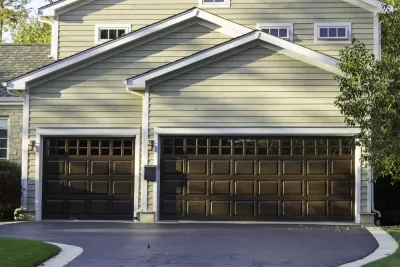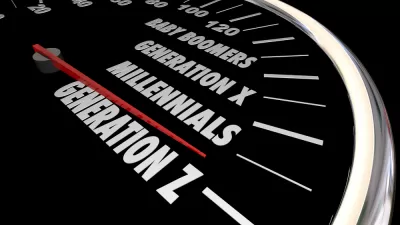The young and the recently arrived in Seattle are less and less likely to own a car, according to new Seattle Times analysis of Census data.

According to an article by Gene Balk, peak car is still alive and well in Seattle. "Census data show that from 2010 to 2015, the percentage of Seattle households that own a vehicle declined — that’s noteworthy because it’s something that hasn’t happened in decades," writes Balk.
According to Balk's analysis, the reason for the decline is the generational change brought about by Millennials. "At the start of this decade, someone under the age of 35 was just as likely to own a car as anyone else in Seattle. Five years later, car ownership among the city’s young had declined by about 3 percentage points," explains Balk.
The article includes data on other cities from around the city. Seattle leads the pack of cities that are decreasing car ownership—Detroit, Washington, D.C., New York, and San Francisco. The cities with increasing car ownership are lead by Philadelphia, and followed by Atlanta, Denver, El Paso, and Raleigh. Interestingly, in July 2016, the news focused on how Seattle residents owned more cars than Atlanta residents—now we see these two cities' fortunes changing.
It should be noted that Seattle's reduced car ownership and other reports of declining car ownership from around the country are not reflective of the overall national trend in another measure of car culture: vehicle miles traveled. As Planetizen Blogger Steven Polzin has detailed, in terms of vehicle miles traveled, peak car is far from a reality.
FULL STORY: Seattle has reversed a decades-long trend of rising car ownership — and millennials are the reason

Maui's Vacation Rental Debate Turns Ugly
Verbal attacks, misinformation campaigns and fistfights plague a high-stakes debate to convert thousands of vacation rentals into long-term housing.

Planetizen Federal Action Tracker
A weekly monitor of how Trump’s orders and actions are impacting planners and planning in America.

In Urban Planning, AI Prompting Could be the New Design Thinking
Creativity has long been key to great urban design. What if we see AI as our new creative partner?

King County Supportive Housing Program Offers Hope for Unhoused Residents
The county is taking a ‘Housing First’ approach that prioritizes getting people into housing, then offering wraparound supportive services.

Researchers Use AI to Get Clearer Picture of US Housing
Analysts are using artificial intelligence to supercharge their research by allowing them to comb through data faster. Though these AI tools can be error prone, they save time and housing researchers are optimistic about the future.

Making Shared Micromobility More Inclusive
Cities and shared mobility system operators can do more to include people with disabilities in planning and operations, per a new report.
Urban Design for Planners 1: Software Tools
This six-course series explores essential urban design concepts using open source software and equips planners with the tools they need to participate fully in the urban design process.
Planning for Universal Design
Learn the tools for implementing Universal Design in planning regulations.
planning NEXT
Appalachian Highlands Housing Partners
Mpact (founded as Rail~Volution)
City of Camden Redevelopment Agency
City of Astoria
City of Portland
City of Laramie





























